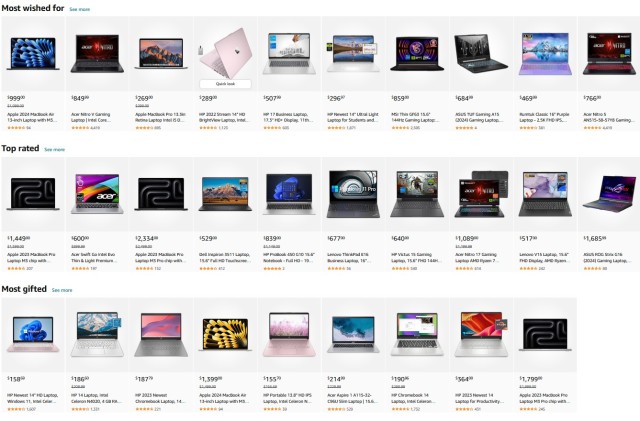Have you ever walked into a store or browsed online to buy a laptop and felt overwhelmed by the sheer number of models available? I certainly have. It seems like every laptop manufacturer has countless models, and honestly, it can be pretty confusing. Why do we need so many options? Is this really helpful, or is it just causing more headaches for consumers like us?
Why So Many Models?
Manufacturers say that the variety helps cater to different needs. Some people want something lightweight and portable, others need a powerful machine for gaming or design, and some are just looking for something cheap that does the job. They also want to keep updating models with the latest tech to stay competitive. That part makes sense — technology moves fast, and keeping up can mean rolling out new models often.
 Too Many Laptop Models
Too Many Laptop Models
Additionally, the differences in hardware like CPUs, GPUs, displays, and amounts of RAM can lead to new models. Each slight upgrade or variation might result in a completely new product line, which adds to the growing number of options.
But Here's the Problem
All these choices can be too much. When you have hundreds of options with slight variations, picking the right one becomes a daunting task. This flood of options can lead to decision fatigue, where you're so overwhelmed by the choices that making any decision starts to feel exhausting.
Sub-Brands and Special Series
Manufacturers sometimes try to streamline their portfolios by introducing sub-brands or special series aimed at specific market segments. For instance:
- Lenovo has the ROG series for gaming, ThinkPad for business, and Yoga for flexibility.
- Dell offers Alienware for gaming, Precision for high-performance work, and sub-brands like Vostro, Inspiron, XPS, and Latitude for various consumer and business needs.
These brands are supposed to make it easier for us to choose based on our specific needs, like gaming or professional use. However, even with these sub-brands, it feels like there are still too many models.
What's the Middle Ground?
I think laptop manufacturers could simplify things without losing the ability to meet different consumer needs. Maybe they could streamline their models into a few clear categories, like high-performance, budget, and ultraportable. This way, it would be easier for us to understand what we're looking at and make a decision based on a few clear options.
They should also make it easier for us to understand the differences between each model. Cut down on the tech jargon and marketing fluff — just tell us plainly what each laptop does well and who it's best for.
Bottom Line
We definitely need options because everyone's looking for something a little different. But the current situation with so many models can be too confusing. A simpler approach with clearer choices could really help us all feel more confident about the laptops we choose to buy. Manufacturers could do better by limiting the number of similar models and focusing more on meaningful innovations that meet distinct consumer needs.